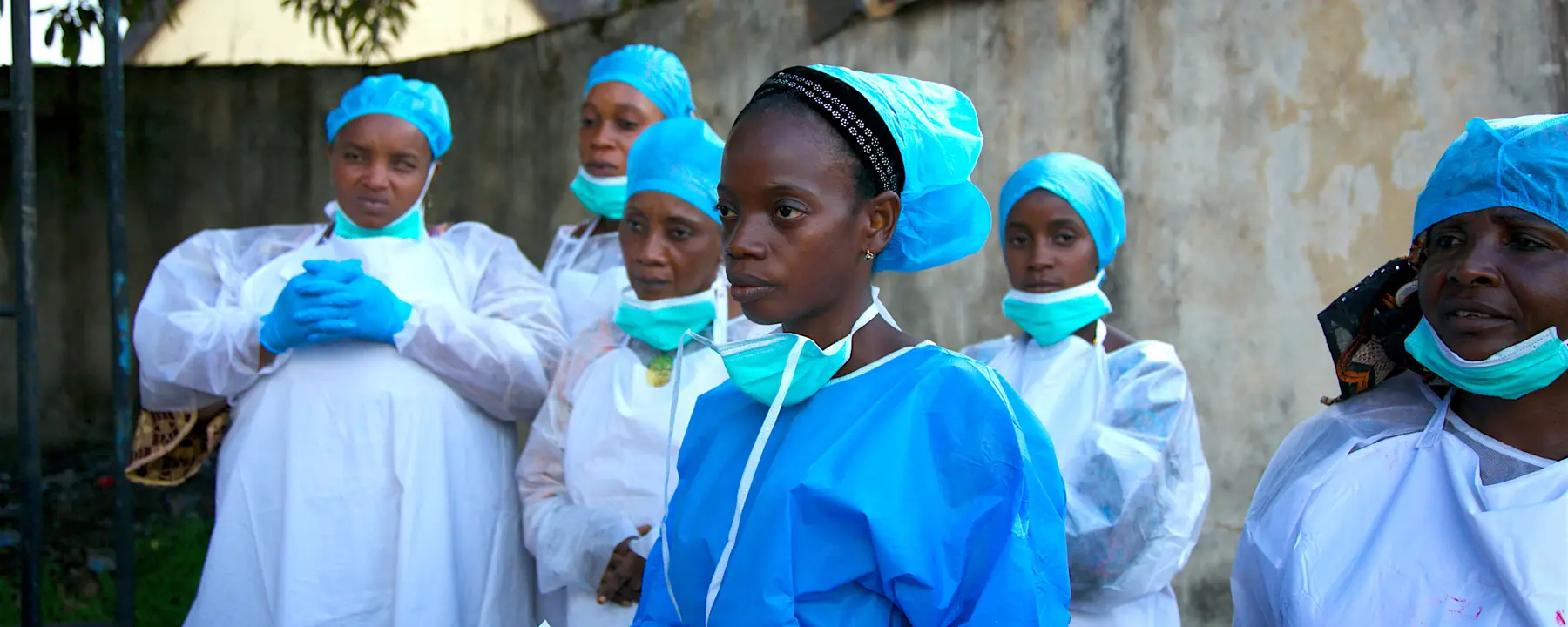Empowering communities to stop the spread of disease
For more than a decade, RTI has been working side-by-side with officials on the ground in Guinea to improve the overall well-being of the people living there. With a sound understanding of the country’s culture, infrastructure, and needs, we have been a leader in helping the local government, community-based organizations, and businesses quickly and effectively respond to infectious disease outbreaks.
Starting in 2015, we used our local knowledge and experience to support efforts of the U.S. Centers for Disease Control and Prevention (CDC) to halt the spread of Ebola.
Understanding the Ebola Crisis in Guinea
In March 2014, when the largest outbreak of Ebola began in West Africa, Guinea was one of the hardest-hit countries—with more than 3,000 confirmed cases and 2,500 associated deaths. In addition to the toll on human life, the epidemic halted mining and other industries, which disrupted economic supply chains and resulted in food shortages, disruption in the delivery of health care and education, and general security issues.
Under the direction of the CDC, we support the long-term goal of strengthening Guinea’s in-country capacity to effectively prevent, detect, and respond to disease outbreaks, health threats, and public health emergencies—ensuring its systems comply with the World Health Organization’s International Health Regulations. These regulations aim to decrease global threats from infectious disease, even as international trade and travel increase.
Recognizing the need to improve overall public health infrastructure, we help strengthen early warning disease surveillance systems and enhance screening triage protocols in hospitals to more quickly identify and respond to threats. We also support disease-related data collection, and help train the local workforce to effectively respond to health threats.
Empowering Local Communities to Respond
Our global health work centers on partnerships with government agencies, local organizations, service providers, and communities to help them identify and address the root causes of public health challenges.
As part of our efforts to improve early-warning systems in Guinea, we helped train local community health workers, known in Guinea as agent communautaire de santé (ACS).
ACSs are the eyes and ears of the health surveillance system. They work in their communities to share information about diseases, symptoms to watch for, and what to do when a community member falls ill. Supervised by staff in local health centers, ACSs receive tablet computers so they can easily input surveillance data into a centralized electronic system. This real-time information helps local and national health officials analyze and respond to potential outbreaks.
Our team of experts also works with local health workers and volunteers to establish new hospital triage units. These simple, prefabricated shelters allow hospitals to admit suspected cases of Ebola or other communicable diseases without endangering other patients. Triage units also enable health workers to track information about symptoms and suspected diseases.
To further support surveillance efforts, we helped implement the District Health Information System Version 2 (DHIS 2)—an open source information system. As Guinea’s national epidemiological surveillance information system, DHIS 2 allows information about patients, diagnoses, and data to be shared across the region.
Training and Infrastructure Prepare Guinea for Future Outbreaks
On December 29, 2015, the World Health Organization declared Guinea free of Ebola.
In aiding Guinea’s efforts to reach this monumental milestone, we helped build the nation’s capacity at the local level to respond to future disease outbreaks. Through our efforts, Guinea has nearly 150 more trained ACSs, 45 new triage units, and 500 health personnel trained in infection prevention and control. This work has not only improved the local capacity to respond to outbreaks, but it also empowered the people of Guinea to support their communities and neighbors.
- Centers for Disease Control and Prevention (CDC)

